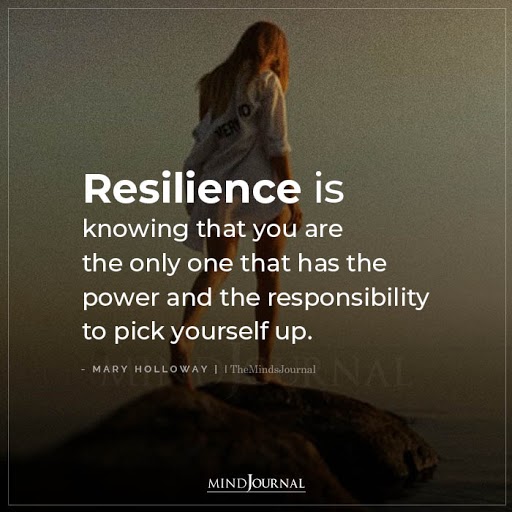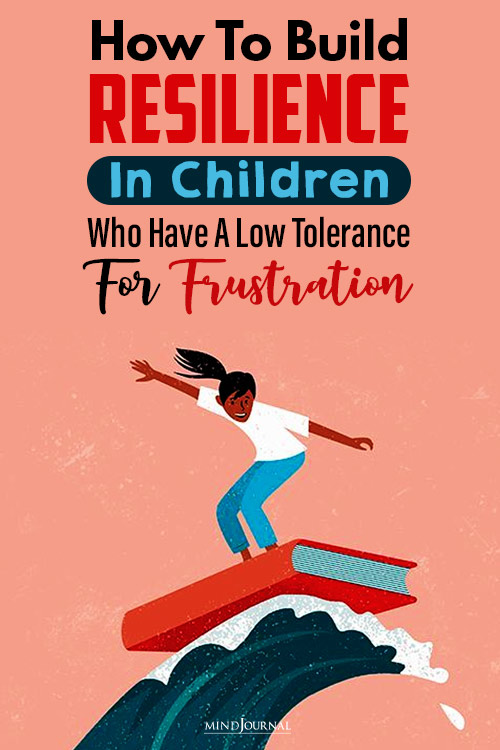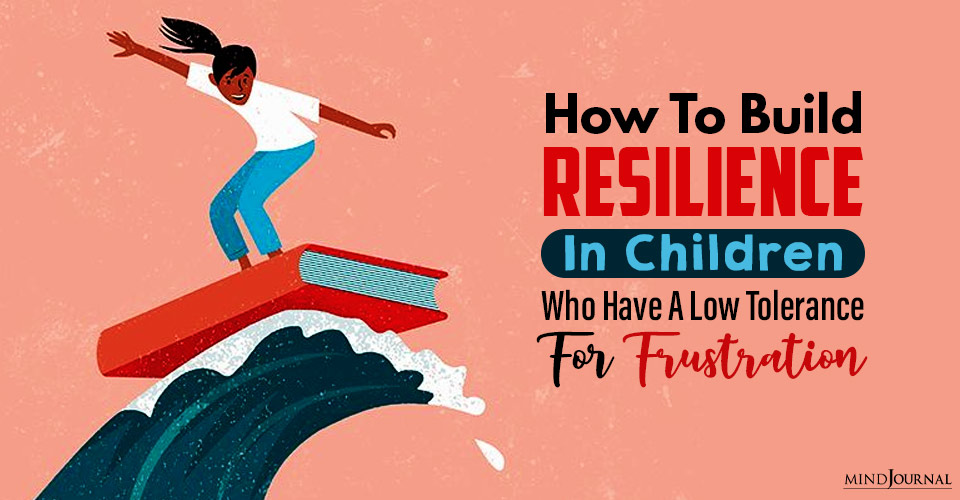Some children are sensitive and have a low tolerance for frustration. Here are 4 things parents can do to build resilience in children.
Lucas (4) just got a new scooter which he has wanted for a very long time. He hops on it, but as soon as he has trouble balancing, he tosses it to the ground. He pronounces that he hates scooters, that he really never wanted one, and runs inside.
Highly sensitive (HS) children tend to experience more distress and give up more easily when they confront a challenging task or can’t master a new skill right away. The root cause, once again, is the vulnerability and loss of control that gets triggered very quickly in these kids.

HS children need more support to build resilience—to see that they can muscle through challenges.
4 Tips To Buid Resilience In Children
1. Avoid Solving Your Child’s Problems—Aka, Learn To Get Comfortable With Your Child’s Discomfort.
It’s a natural, human reaction not to want to see your child struggle. Your knee-jerk response may be to rescue or “fix” whatever is causing your child distress, especially when your HS child is acting as if it’s a five-alarm fire. But the fact is that learning a new skill involves feeling uncomfortable to some degree or another until we have mastered it.
Struggling is not bad or harmful to kids, it is part of the learning process. The distress they experience as they work through a challenge is what we call “positive” stress because it leads to growth.
Picture your child working on riding a bicycle. If you never let up on your hold—doing the balancing for her—your child doesn’t experience the teetering that can feel a little scary and uncomfortable, but that’s what leads her to figure out how to eventually maintain her balance and experience the incredible sense of pride when she can cruise around on her own.
When you run to the rescue, you are unintentionally sending the message that you don’t think your child is capable of mastering the challenges she faces, and that only adult can solve her problems. It also teaches her that failure is something to be feared or ashamed of, when in fact it is a critical component of the learning process.
While it is no doubt easier to swoop in like the fixer, acting as a supportive coach instead will build your child’s self-confidence and help her feel competent to work through life’s challenges.
Related: 5 Signs Of Overprotective and Unaffectionate Parents
2. Position Yourself As Your Child’s Problem-Solving Partner.
Let your child know that you have confidence in her ability to learn to solve the problems she encounters; that she can do hard things. You will always help her think through the challenges she faces and help her come up with solutions. But you won’t solve her problems for her, because that is her job.
In this vein, Seema’s parents acknowledge her frustration and let her know that when she is ready to try again, they are happy to help her work on it. They refrain from cajoling and pushing her to keep trying when they see that this is not helping and only getting her more agitated.
Related: Teens And Dangerous Levels Of Cell Phone Use
3. Help Your Child Think Through Creative Ways To Solve The Problem.
Start by asking your child for her ideas about what might be some solutions. Before offering your own input, be sure to ask your child if she would like to hear some of your ideas for solving the problem. Recently, at a preschool where I consult, a child fell apart because it wasn’t his turn to be the snack helper. I suggested other jobs he could do instead.
This only led to his getting more revved-up and responding: “No, no, no–don’t tell me that!” I pivoted and tried: “I have some ideas about how you might solve this problem. Do you want to hear them?” He quickly calmed down and was all ears. This seemingly minor nuance can make a big difference.
Offering unsolicited guidance, especially when a child is in a stressed state, can feel intrusive and intensify your child’s distress. Asking for permission to provide input shows respect for your child’s boundaries and makes it more likely that he will actually absorb the ideas you are sharing.
4. Provide The Support Your Child Needs To Master The Challenge. Don’t Do Something For Her That She Is Able To Do On Her Own.
When Lucas says he is ready to try the scooter again, his dad, Russell asks him what kind of help he’d like. Lucas says he wants Russell to hold onto the handlebars while he just stands on the scooter without it moving. Once Lucas feels comfortable with the scooter stationary, they agree that the next step should be Russell pulling Lucas on the scooter along the driveway, as Russell continues to hold the handlebars.
Then Lucas says he wants to push on his own while dad is still holding on. Taking this incremental approach, with Russell slowly pulling back on his support, Lucas is scootering on his own masterfully by the end of the day.
Related: Teens And Dangerous Levels Of Cell Phone Use
Another recent example: three-year-old Malcolm is dead set on pouring his own milk, but it keeps spilling and Malcolm is getting frustrated. His dad, Roger, knows Malcolm is able and ready to master pouring, but not from a large, bulky milk carton.
So instead of just taking over and pouring the milk himself, Roger acknowledges Malcolm’s frustration and cheerily announces, “We can solve that problem!” Roger gets out a sports bottle, fills it with milk, and hands it to Malcolm who happily fills his own cup.
Written by: Claire Lerner
Originally appeared on: Lerner Child Development
Republished with permission









Leave a Reply
You must be logged in to post a comment.